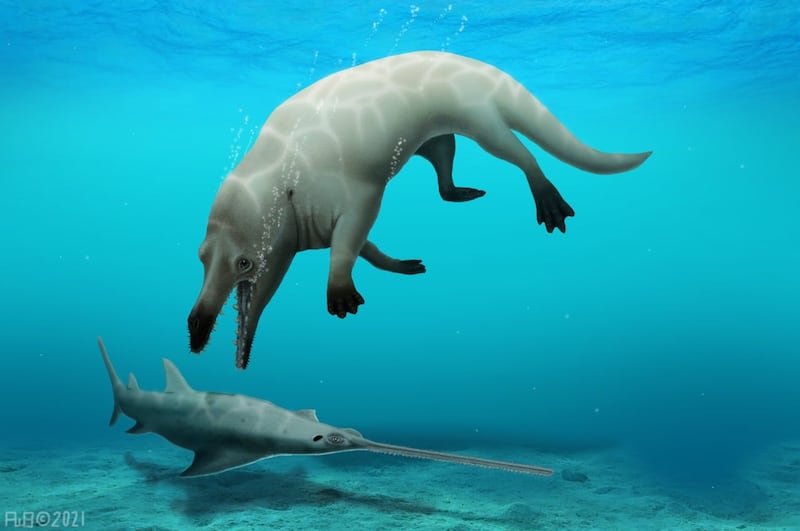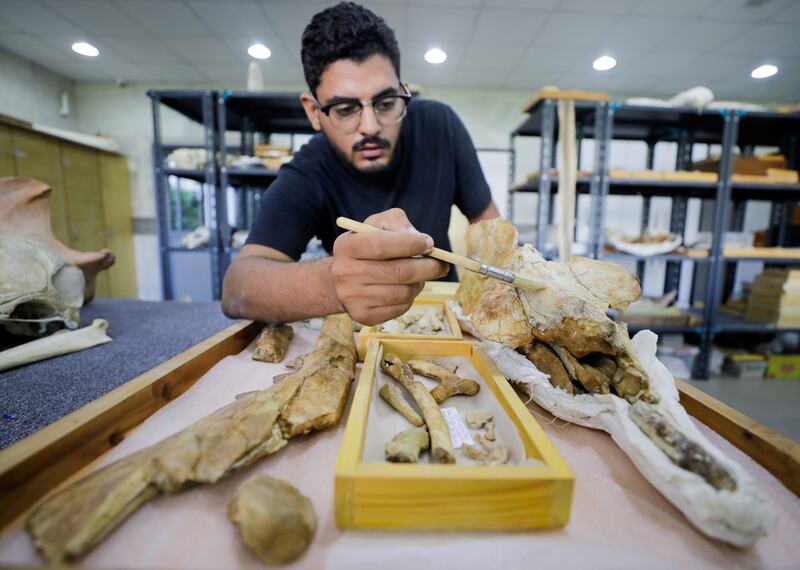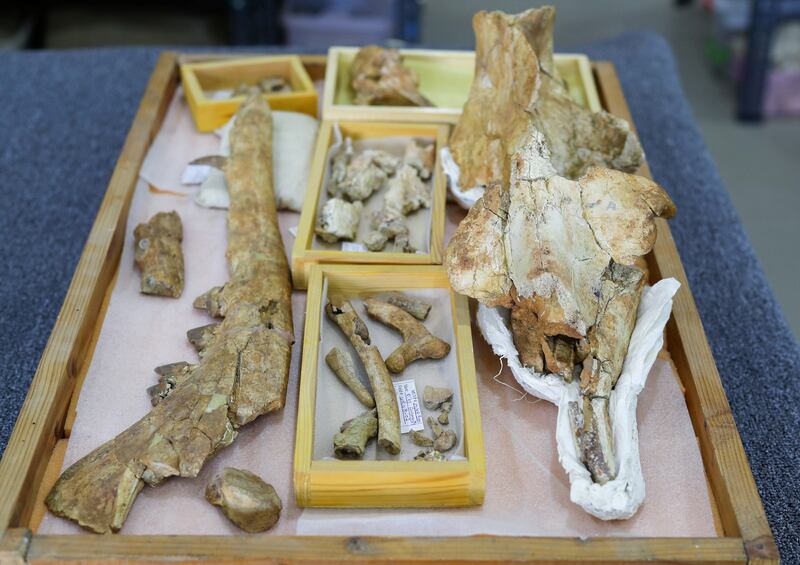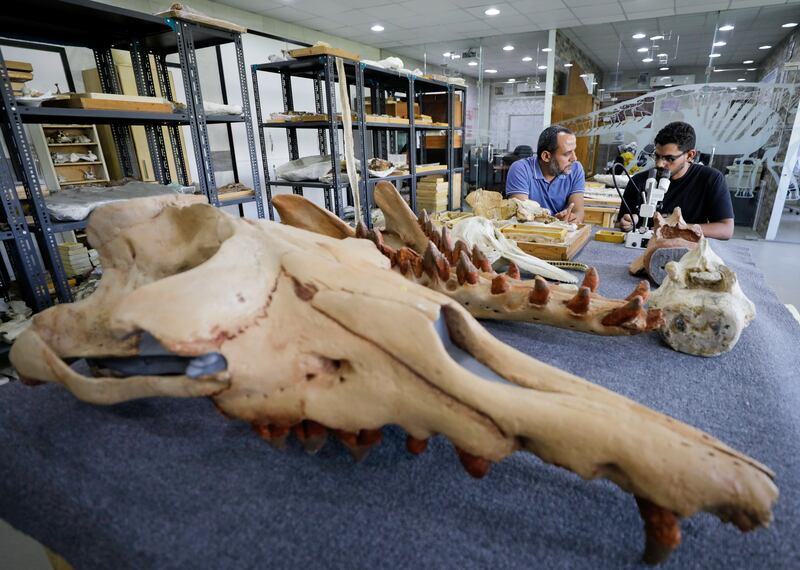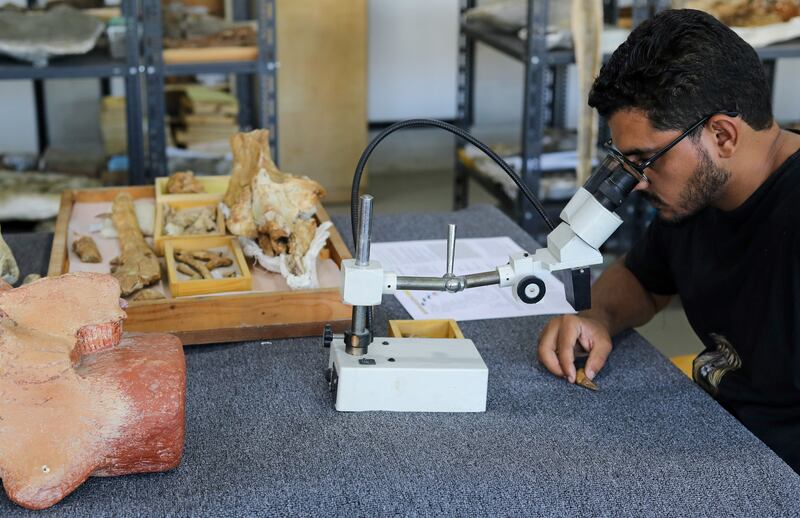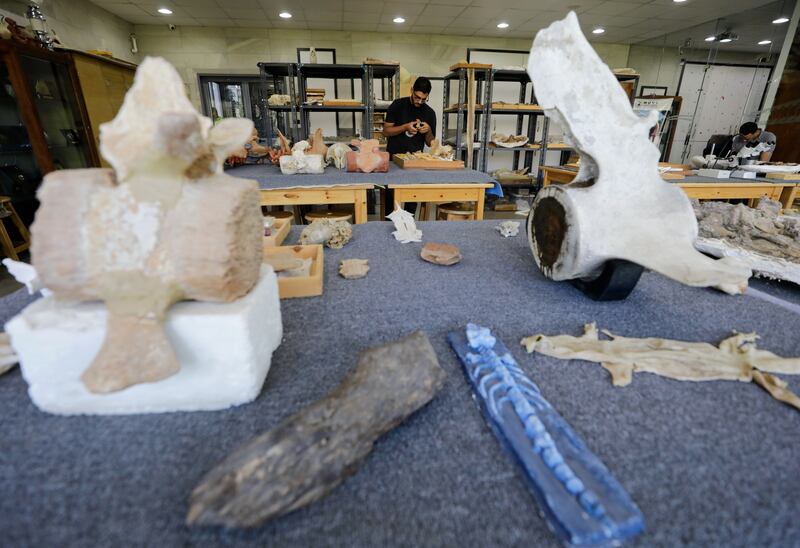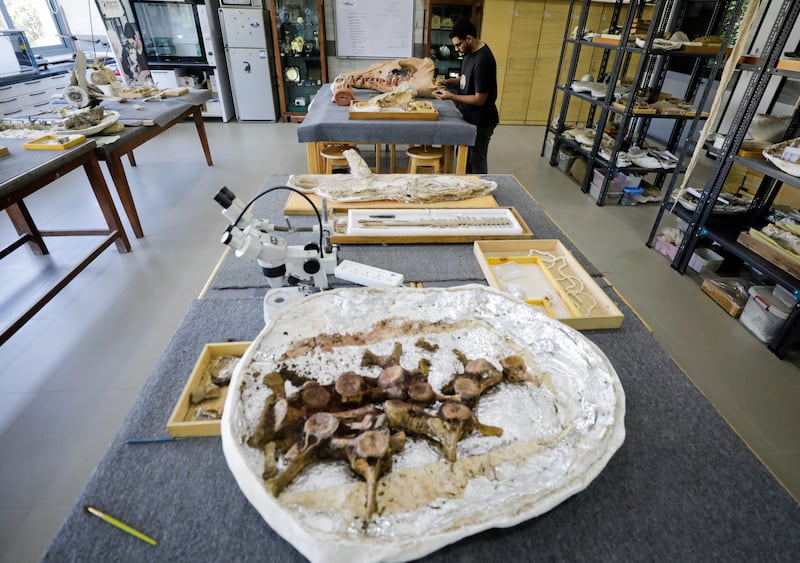Egyptian researchers on Wednesday announced the discovery of a species of semi-aquatic whale with legs, which lived 43 million years ago.
The discovery was made by a team of palaeontologists at Mansoura University who spent more than a decade studying the fossils before publishing their findings in the Royal Society journal.
It has been named Phiomicetus anubis, after the ancient Egyptian god of death.
Fossil of previously unknown four-legged whale found in Egypt
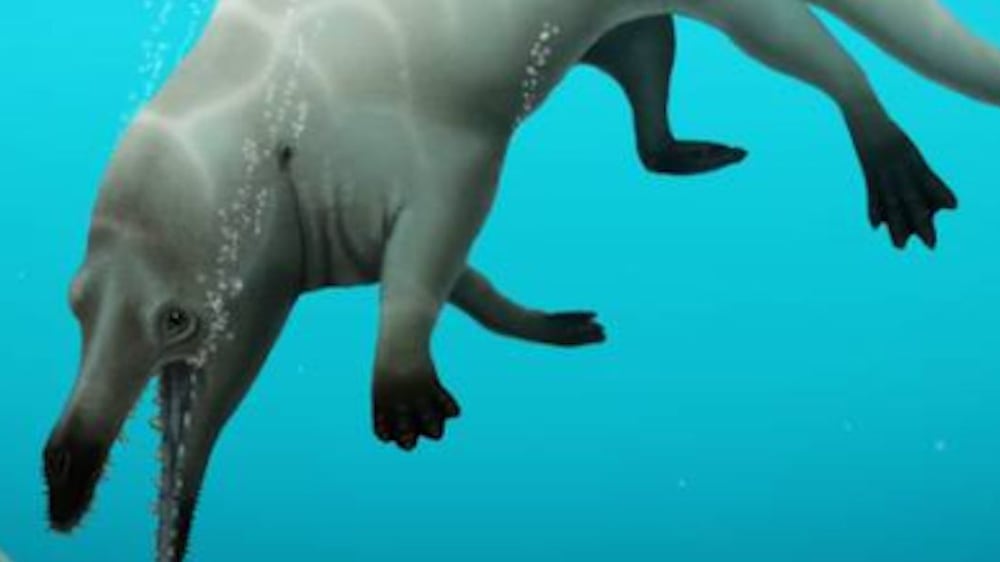
The fossil was found by a team that included Dr Hisham Salam, a professor of excavations at Mansoura University, and his graduate student Abdullah Gohar. The excavation was overseen by Egypt's Environment Ministry.
The excavation and subsequent study are particularly significant in Egypt as it marks the first palaeontological discovery to be carried out by an all-Arab team.
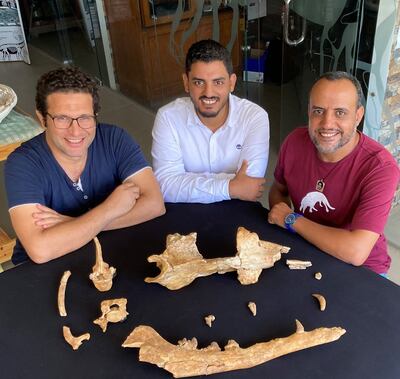
Phiomicetus anubis belongs to a group of prehistoric marine animals called protocetids. These are unique because they are both aquatic and terrestrial, marking the middle of an evolutionary shift that changed whales from deer-like herbivores to the aquatic behemoths we know today.
This shift happened in the Eocene epoch between 56 million and 33.9 million years ago.
The fact that the legged whale was named after the god of death was also no coincidence. It stemmed from the research findings that point to the new species being equipped with a unique physiology that made it very adept at hunting and killing various kinds of prey.
"It was a successful, active predator," Mr Gohar, the study's lead author, told Live Science. "I think it was the god of death for most animals that lived alongside it."
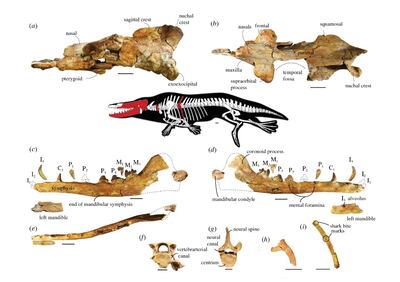
The study concluded that the whale measured three metres in length and weighed about 600 kilograms.
The whale’s fossilised remains were found in 2008 in Egypt’s Fayoum province, southwest of Cairo, in a valley that has been dubbed Wadi al Hitan – Valley of the Whales – because of the large number of marine animal fossils unearthed there.
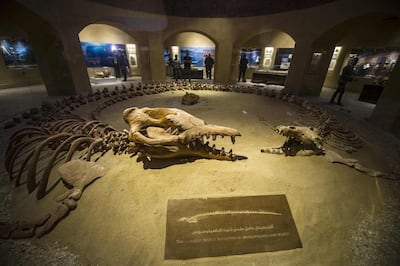
The site was also where another prehistoric species of whale – Rayanistes afer – was discovered. The majority of the fossils found in Wadi Al Hitan are from the Eocene period of prehistory.
Mr Gohar and colleagues analysed the fossils in the lab of Hisham Salam, founder of the Mansoura University vertebrate paleontology centre and the study's senior author.
